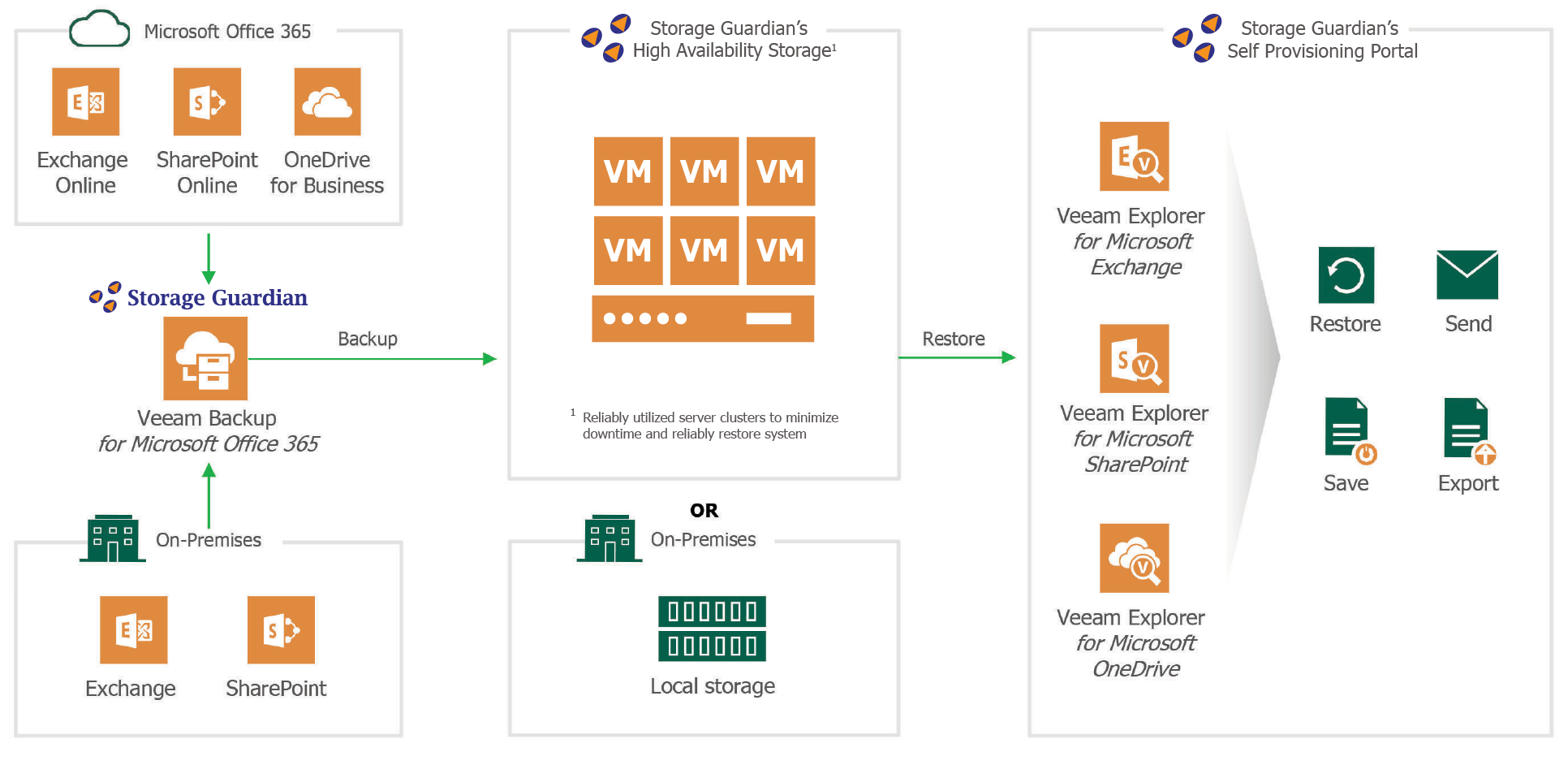Cloud-to-cloud backup for Microsoft 365 & Teams
Cloud-to-Cloud Backup for Microsoft 365 & Teams
If your organization uses Microsoft 365, you might think that there is no risk of your data ever being lost. After all, Microsoft 365 is a widely used platform that’s backed by Microsoft and has a guaranteed 99.9% uptime. However, there are important reasons to copy your data to a separate vault that resides within your area of control.
Why back up your Microsoft 365 data?
Compliance
Many industry regulations impose strict document and email retention
requirements which Microsoft 365 does not accommodate by default. Moreover,
if your Microsoft 365 subscription is cancelled, all your data is automatically
deleted after 90 days – which violates several industry policies.
Liability
If your data is lost, Microsoft’s liability is limited to $5,000 or your last 12
months of subscription fees – but your level of risk and liability is virtually
unlimited. Backing up your data to a separate cloud environment mitigates
this risk.
Audit Rights
Microsoft 365 provides you with no audit rights – preventing you from
showing the physical location where your data is stored if required in an
audit. Maintaining a backup copy in a secure and auditable location may
be an acceptable solution.
Vendor Lock-in
Maintaining a backup copy of your Microsoft 365 data makes it much easier
to consider migrating to another vendor’s office productivity service.
Key Benefits
- Back up data from across all Microsoft 365 licensing models – including Business Essentials and Business Premium
- Easy deployment
- Advanced administration; granular backups and policies
- Define data protection policies for hundreds of users at a time
- Easily monitor backup results and recovery options
- Secure – NIST FIPS 140-2 validated;
- AES 256 bit encryption at rest and in flight
- Protect all your data, in addition to Microsoft 365

How we back up your Microsoft 365 data
With Storage Guardian, you can easily create backup sets for data residing in several clouds, including Microsoft 365. Create any number of backup sets for your cloud-based data, and define the frequency and granularity of the backups separately for each one. Most importantly, you can back up and administer your cloud-based data using the same backup and recovery platform that you use to protect the rest of your company’s data – regardless of its location.

Microsoft 365™ services protected by Storage Guardian
Microsoft OneDrive + Teams
All Files
Content (Team sites, files, and documents)
Calendar Meetings
Public/Private channel conversation messages
Microsoft Outlook
Mailboxes
Calender
Contacts
Tasks
Email (attachments &
metadata)
Microsoft SharePoint Online
Sites
Calender
Contacts
Discussion Lists
Document Libraries
List Content
